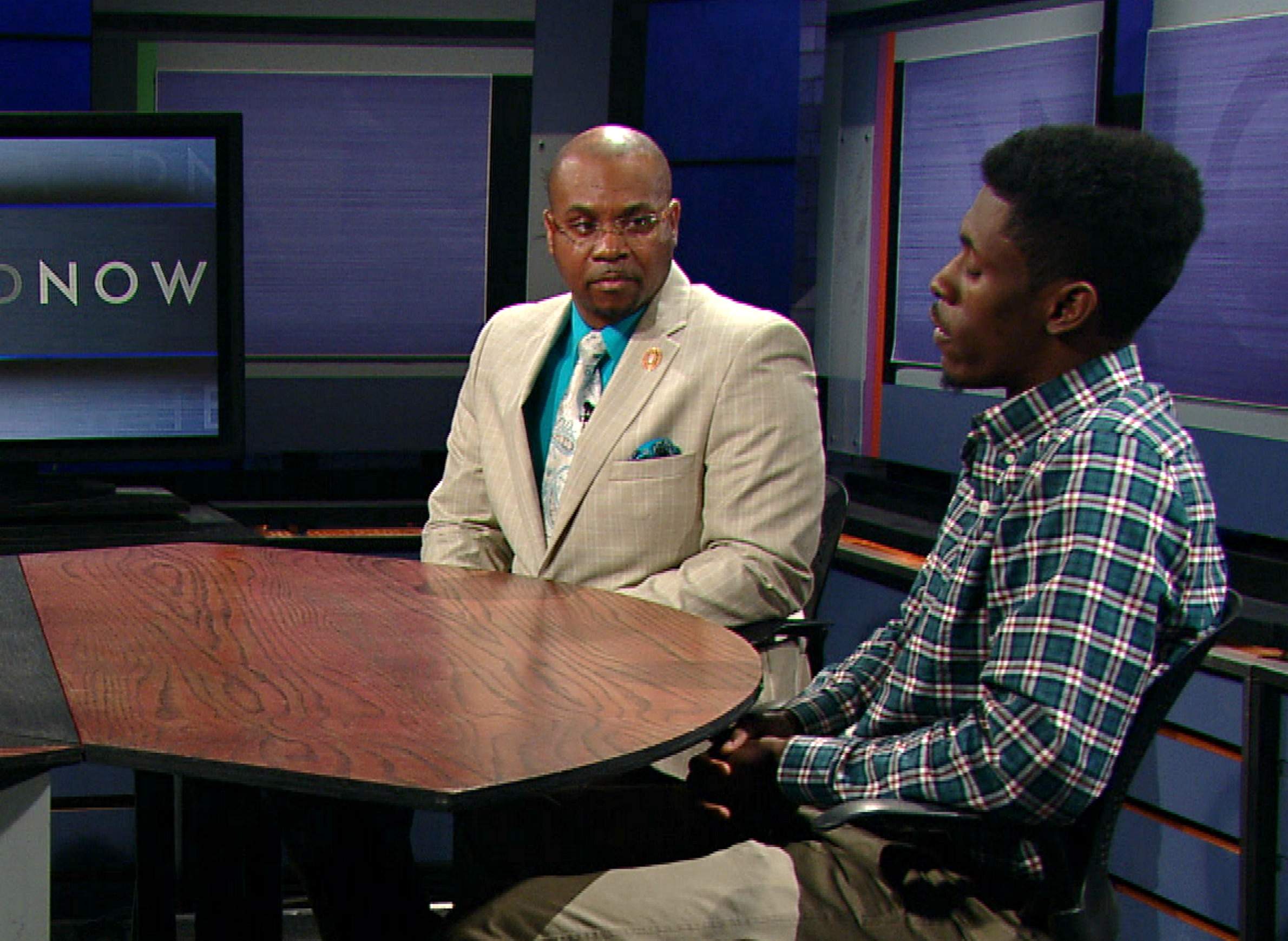
UW-Madison senior Kenneth Cole (right) on campus racism: "We haven't had proactive measures to solve these problems."

UW-Madison senior Kenneth Cole (right) on campus racism: "We haven't had proactive measures to solve these problems."
Over the last year, University of Wisconsin-Madison students have tenaciously sought to build a conversation about racism at the state's flagship university. But even as administrators are responding, these students are not letting the institution itself drive the conversation.
An April 29, 2016 interview on Wisconsin Public Television's Here And Now captured this evolving dynamic between campus officials and student leaders. While Patrick Sims, a vice provost and chief diversity officer at UW-Madison, and Kenneth Cole, a senior and leader of the campus group UW BlackOut, agreed on much in their joint interview with host Frederica Freyberg, an unmistakable friction was present.
In early April, Sims posted a video in which he denounced "punk-ass" acts of racism on campus, an action that received both local and national media coverage. Commentators praised the bluntness and righteous anger Sims brought to this video.
But on Here And Now, Cole was measured in his response to the video and came back around to holding campus officials — Sims included — accountable for taking real action in the future. Cole said campus officials need to treat incidents like the threatening racist note that prompted Sims' video as symptoms of a deep-seated problem, not as aberrations.
"My reaction was, this is long due," Cole said of Sims' video. "We need this type of response from our administration, but I also carry a very critical lens, because as [Sims] said, these aren't incidents that are just occurring now… we haven't had proactive measures to solve these problems. While I agree with the sentiments of the video, a lot of students felt that it was much too late of an effort."
It's also worth noting that on #TheRealUW, a Twitter hashtag targeting racism on campus, some have voiced outright skepticism about Sims. One user wrote that she believes Sims genuinely cares about the racial climate on campus, but added, "Let us not forget that this is the same man that so many POC [people of color] on this campus do not feel connected to let alone supported by."
Sims didn't discuss these criticisms directly in the interview, but did talk about the complexity of his role as both part of the UW-Madison administration and a voice for marginalized groups on campus. "I did not want to be the spokesperson, if you will, for any and all things related to diversity," he said. "I walk a fine line."
Sims acknowledged in the interview that "a perfect storm is forming" around racism on campus. The issue has been building through the spring 2016 semester. In addition to racial harassment from fellow students and a white-nationalist hacker targeting campuses nationwide, many UW-Madison students and faculty are also outraged about the April arrest of an African American undergraduate. Charged with tagging campus buildings with anti-racist graffiti and threatening a bystander, the student was arrested in the middle of a class, something for which the UW-Madison police chief has since apologized.
Amid ongoing protests and criticism from students, UW-Madison Chancellor Rebecca Blank has announced some initiatives, including cultural competency training for administrators and securing a major donation for a scholarship program aimed at students of color.
"The chancellor's committed to her senior staff, her cabinet, to engage in this experience," Sims said of the competency training. "It's something I've called for, it's something that our strategic diversity framework has actually called for. So it's in alignment with the things that we've been trying to do since I stepped in the role in 2013. So we have some momentum, and I think the students are absolutely right to seize the opportunity."
Cole wants prospective students to seize that opportunity as well.
"I would tell students of color who are considering coming to UW-Madison, please do," Cole said. "We need more students of color here. We need to focus on bringing students in and retaining the students we get. I would tell them that when they do come here, do as much as you can to better your student-of-color experience, and better that for as many people as you can here as well."